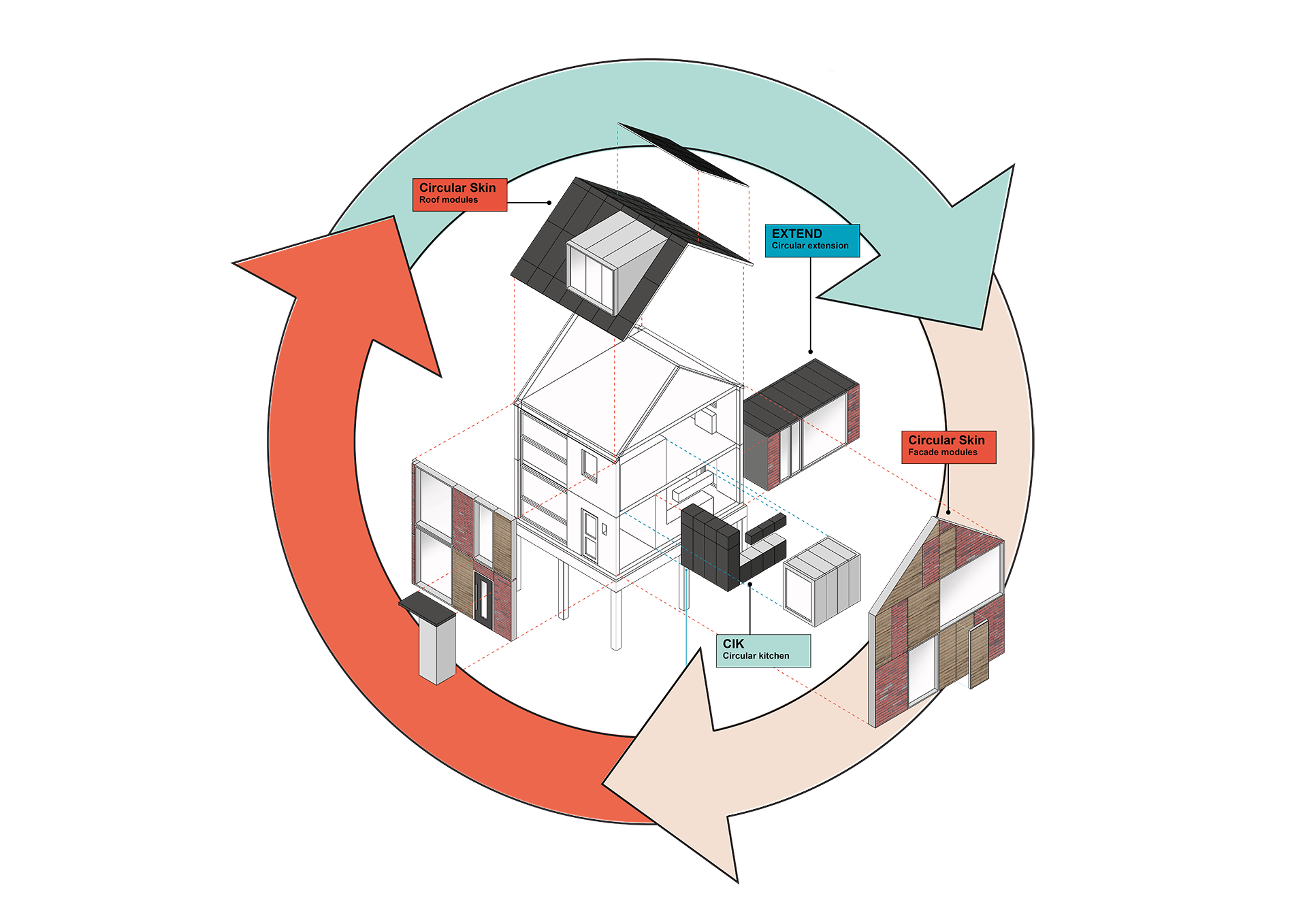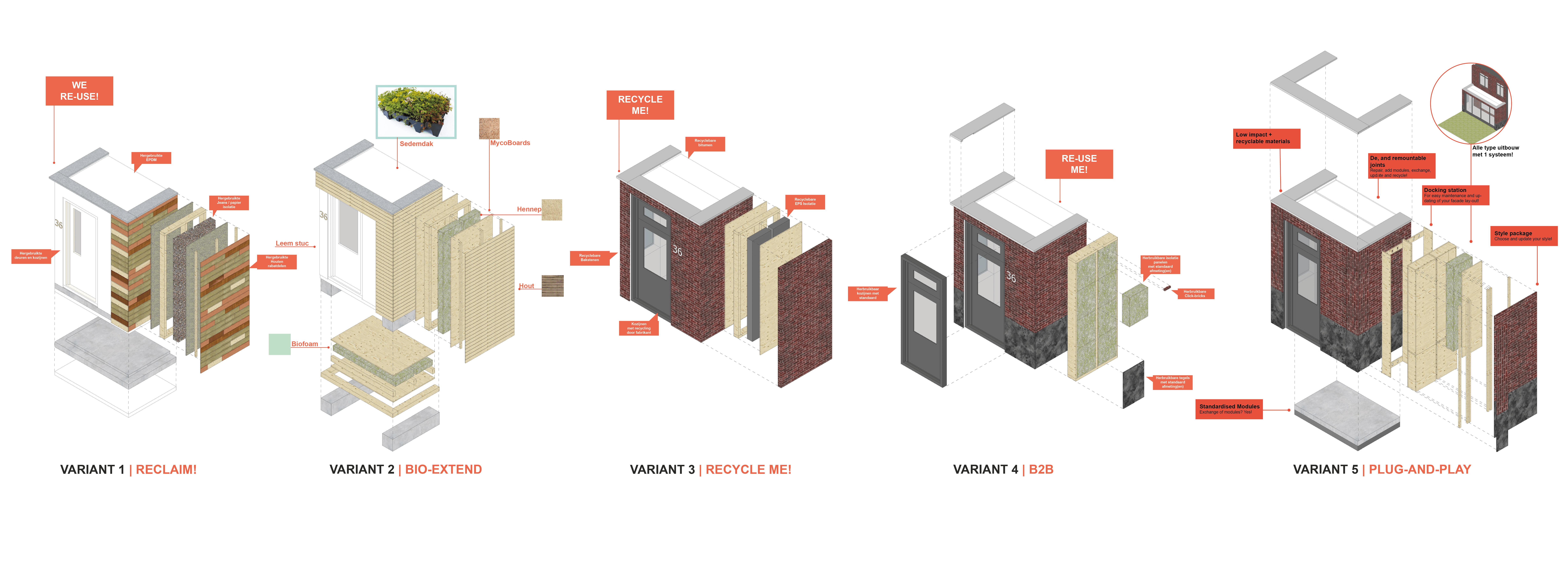REHAB
Developing circular components for housing renovation
The transition to a circular economy in the built environment is one of the major challenges of our time. The aim of a circular economy is to use less material, to use components for longer and to close the loop for materials and products. Buildings are made up of different components, such as façades, kitchens and bathrooms. By replacing these with circular components during maintenance and renovation, we can make the housing stock circular step by step.
The ‘REHAB’ project is aimed at developing two circular building components for housing renovation: a circular skin and a circular extension. Circular design and assessment tools are also being developed as part of the project.
The Circular Skin and Circular Extension are being developed in co-creation with TU Delft, AMS Institute, housing associations and industry partners.
The Circular Skin: opportunity to speed up the energy transition
Many homes in the Netherlands need to be made more energy-efficient. This is often achieved by insulating the façade using a second skin, thus requiring additional materials. How can we connect the energy transition and creating a circular economy? TU Delft and AMS Institute are collaborating with two teams, the renovation team at Wonion and with Ymere and Dura Vermeer, to develop a circular skin. Both versions of this renovation skin are not only more sustainable, but also provide opportunities to speed up the energy transition. A design based on extendible modules makes it possible to renovate in different cycles, so dwellings can be made energy neutral step by step. Circular business models also create opportunities to keep the initial investment costs down.
A number of design variants were developed in 2019, and the first prototypes were built in collaboration with Rotterdam University of Applied Sciences. In the coming period, we will be working towards first pilot projects.
The Circular Extension: flexible and adjustable
As part of the ‘REHAB’ project, TU Delft, AMS Institute, ERA Contour and Eigen Haard are developing the Circular Extension. This circular extension system is made up of standardised modules using circular materials. The modules can be mixed and matched, so that the same system can be used to create a range of different extensions. This modular system also makes it possible to adjust the extension to meet changing housing needs. It is also easy to replace individual components while the building is in use. And, if the extension is no longer needed, the modules can be disassembled and used elsewhere. At the end of the lifecycle, the materials can be recycled.
A design for the Circular Extension was developed in 2019. In the coming time, the first prototype will be realised and we will be working towards a pilot within a renovation project.
Tools for practice
Besides the circular building components, circular design and assessment tools are also being developed as part of the ‘REHAB’ project.
Facts
| Project partners and funding: | TU Delft, AMS Institute, Dura Vermeer, Eigen Haard, ERA Contour, Ymere, Wonion |
| Role: | Lead Partner |
| Project duration: | March 2018 – February 2022 |
| TU Delft researchers: | ir. Anne van Stijn prof.dr.ir. Vincent Gruis prof.dr.ir. Tillmann Klein dr.ing. Gerard van Bortel |


